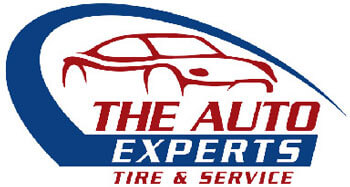In today’s fast-paced world, owning a vehicle has become a necessity for many people. Whether you use your car for commuting to work, running errands, or going on road trips, keeping up with regular maintenance is crucial to ensure its longevity and performance. By investing in preventive maintenance, you can avoid costly repairs down the road and keep your vehicle running smoothly for years to come.
Importance of Regular Maintenance
Regular maintenance is like going to the doctor for a check-up. Just as you wouldn’t wait until you’re seriously ill to see a doctor, you shouldn’t wait for your car to break down before taking it to a mechanic. Routine maintenance tasks, such as oil changes, tire rotations, and brake inspections, not only help prevent major issues but also improve your vehicle’s fuel efficiency and overall safety.
How Regular Maintenance Saves You Money
1. Prevents Major Breakdowns
By following the manufacturer’s recommended maintenance schedule, you can address minor issues before they escalate into major problems. For example, replacing worn-out brake pads is much cheaper than repairing a damaged brake system. Taking care of small maintenance tasks can help you avoid the inconvenience and expense of unexpected breakdowns.
2. Extends the Lifespan of Your Vehicle
Regular maintenance helps prolong the life of your vehicle by keeping all systems in optimal condition. Simple tasks like changing the oil and air filters can prevent engine wear and extend its longevity. By investing in routine maintenance, you can enjoy your vehicle for years to come without having to worry about premature breakdowns.
3. Improves Fuel Efficiency
A well-maintained vehicle operates more efficiently, leading to better fuel economy. When your engine is properly tuned, your tires are inflated correctly, and your air filters are clean, your car doesn’t have to work as hard to perform. This results in savings at the pump and reduces your overall driving costs.
4. Maintains Resale Value
If you plan to sell or trade in your vehicle in the future, staying up to date on maintenance can help maintain its resale value. Prospective buyers are more likely to pay a premium for a well-maintained car with a documented service history. Regular maintenance records can also give them peace of mind that the vehicle has been cared for properly.
Tips for Effective Maintenance
- Follow the Manufacturer’s Recommendations: Check your owner’s manual for the recommended maintenance schedule and adhere to it diligently.
- Keep Track of Maintenance Records: Maintain a file with all service records, including receipts and invoices, to track your vehicle’s maintenance history.
- Pay Attention to Warning Signs: Don’t ignore unusual noises, dashboard warning lights, or changes in your vehicle’s performance. These could indicate underlying issues that need immediate attention.
- Find a Trusted Mechanic: Establish a relationship with a reputable auto repair shop that you can trust to provide quality maintenance services.
- Invest in Quality Parts: When replacing components in your vehicle, opt for high-quality parts that meet or exceed manufacturer standards. This can prevent premature failures and ensure optimal performance.
Final Thoughts
Regular maintenance is the key to avoiding expensive auto repairs and keeping your vehicle in top condition. By investing time and resources in preventive maintenance, you can save money in the long run and enjoy a reliable and efficient car for years to come. Remember, a well-maintained vehicle is not only safer to drive but also more cost-effective in the long term. Prioritize regular maintenance to protect your investment and avoid unnecessary repairs.


